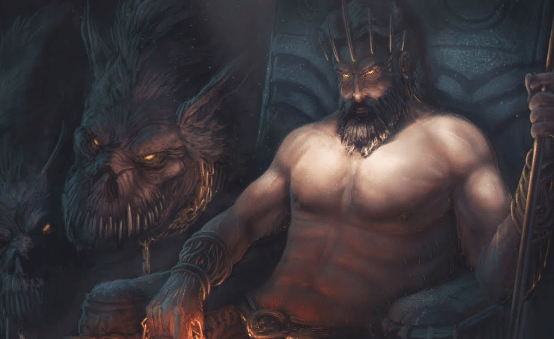God:Vc_Fipqvhuc= Hades

Hades remains a multifaceted figure within Greek mythology, often overshadowed by his more celebrated counterparts. As the ruler of the Underworld, he embodies the complexities of death and the cyclical nature of existence, particularly illustrated through his relationship with Persephone. This narrative not only reflects themes of loss and rebirth but also invites a closer examination of Hades’ interactions with the Olympian gods, particularly the dynamics of his relationships with Zeus and Poseidon. What implications do these connections have for our understanding of divine hierarchy and the nature of mortality?
Hades in Greek Mythology
In the realm of Greek mythology, Hades emerges as a complex figure, often misunderstood and misrepresented in contemporary interpretations.
Hades’ role transcends mere ruler of the Underworld; he embodies the inevitability of death and the cycle of life.
Central to his narrative is Persephone’s abduction, symbolizing the duality of despair and renewal, reflecting humanity’s intrinsic relationship with mortality and the afterlife.
See also: Gaming:Bhg73yaeg70= Mouse
The Underworld’s Structure
The structure of the Underworld, as depicted in Greek mythology, unfolds into a meticulously organized realm that reflects the moral and existential dichotomies of life and death.
This mythical geography comprises distinct regions, such as Tartarus, Elysium, and the Asphodel Meadows, embodying varying afterlife beliefs.
Each area symbolizes the consequences of earthly actions, highlighting the intricate relationship between morality and the eternal journey of the soul.
Relationships With Other Gods
Although Hades is often perceived as a solitary figure presiding over the Underworld, his relationships with other gods reveal a complex web of interactions that shape the dynamics of the Olympian pantheon.
Hades’ siblings, particularly Zeus and Poseidon, exemplify divine rivalries, as their differing realms and influences often lead to tension, yet also foster moments of cooperation that underscore their shared heritage.
Modern Interpretations of Hades
Recent interpretations of Hades in literature, film, and popular culture reveal a multifaceted character that transcends his traditional depiction as merely the god of the Underworld.
Hades’ symbolism has evolved, representing themes of acceptance, transformation, and the inevitability of death. This shift illustrates Hades’ cultural impact, inviting deeper reflections on mortality and the human experience within contemporary narratives.
Conclusion
In examining Hades, the ruler of the Underworld, a nuanced understanding emerges that transcends simplistic portrayals. The intricate relationships with his brothers, Zeus and Poseidon, highlight the complexities of divine hierarchy and cooperation. Furthermore, the abduction of Persephone serves as a poignant reminder of the cyclical nature of life and death, echoing modern existential dilemmas. Ultimately, Hades embodies the universal themes of despair and renewal, prompting reflection on humanity’s enduring connection to mortality.






